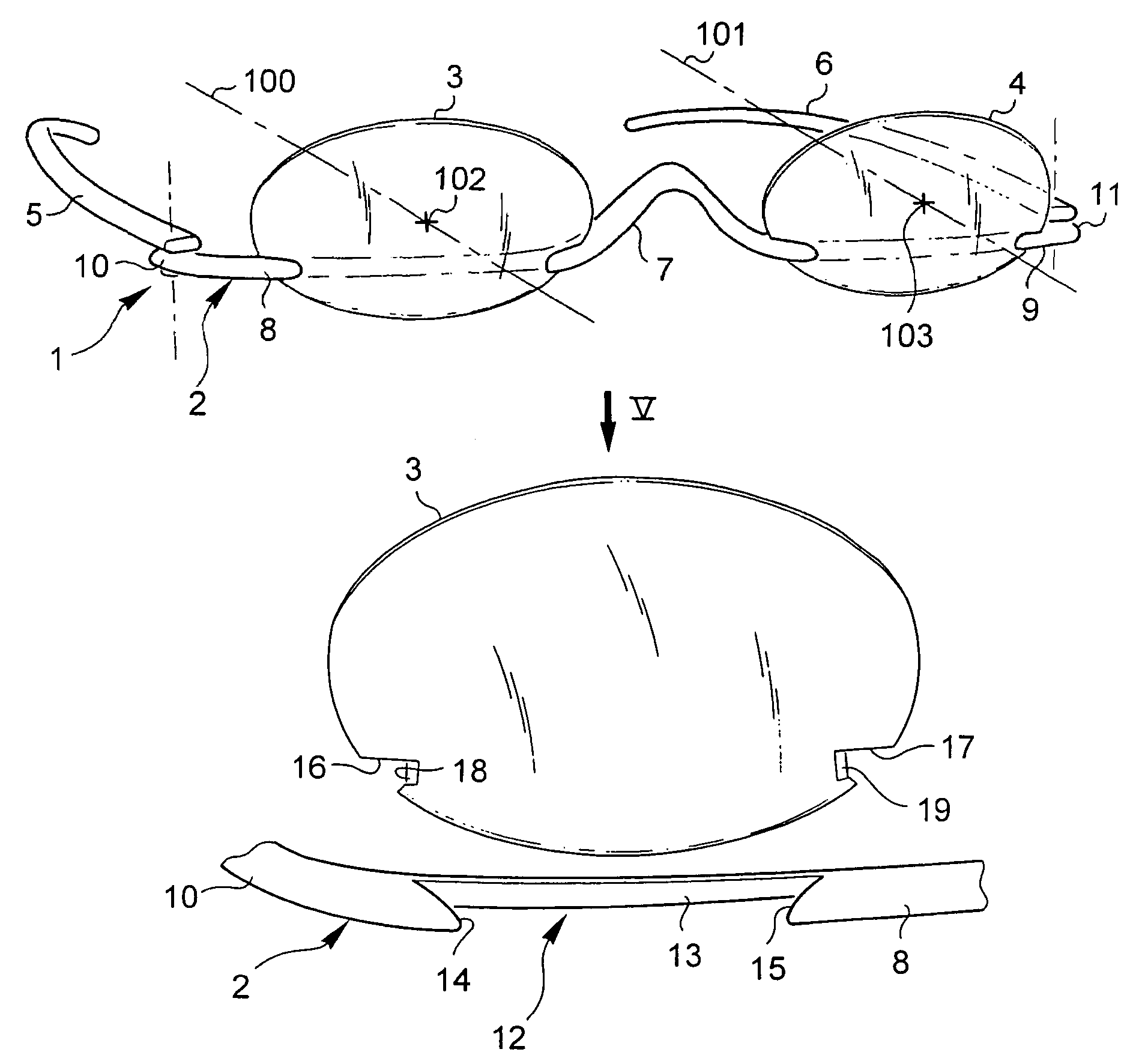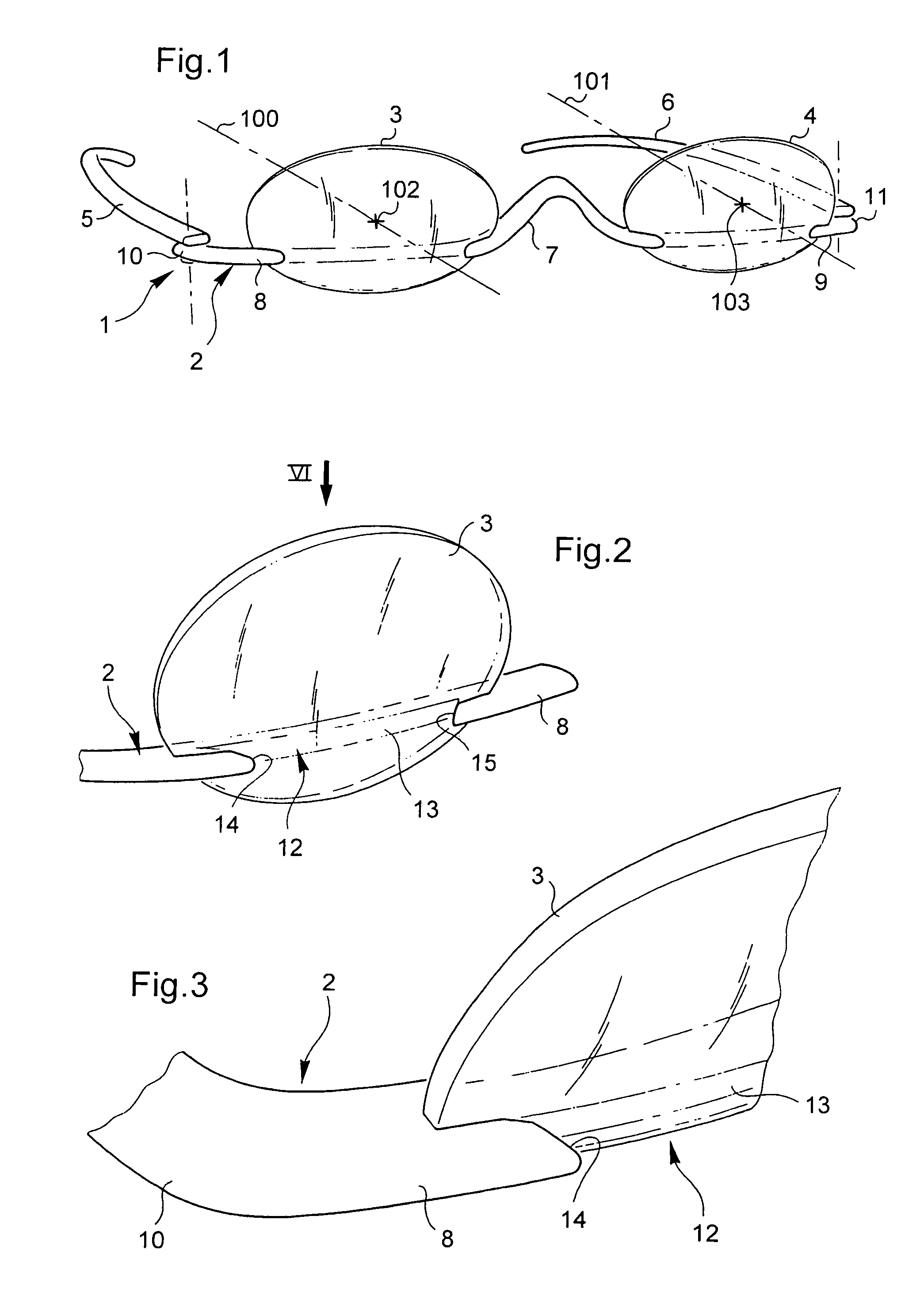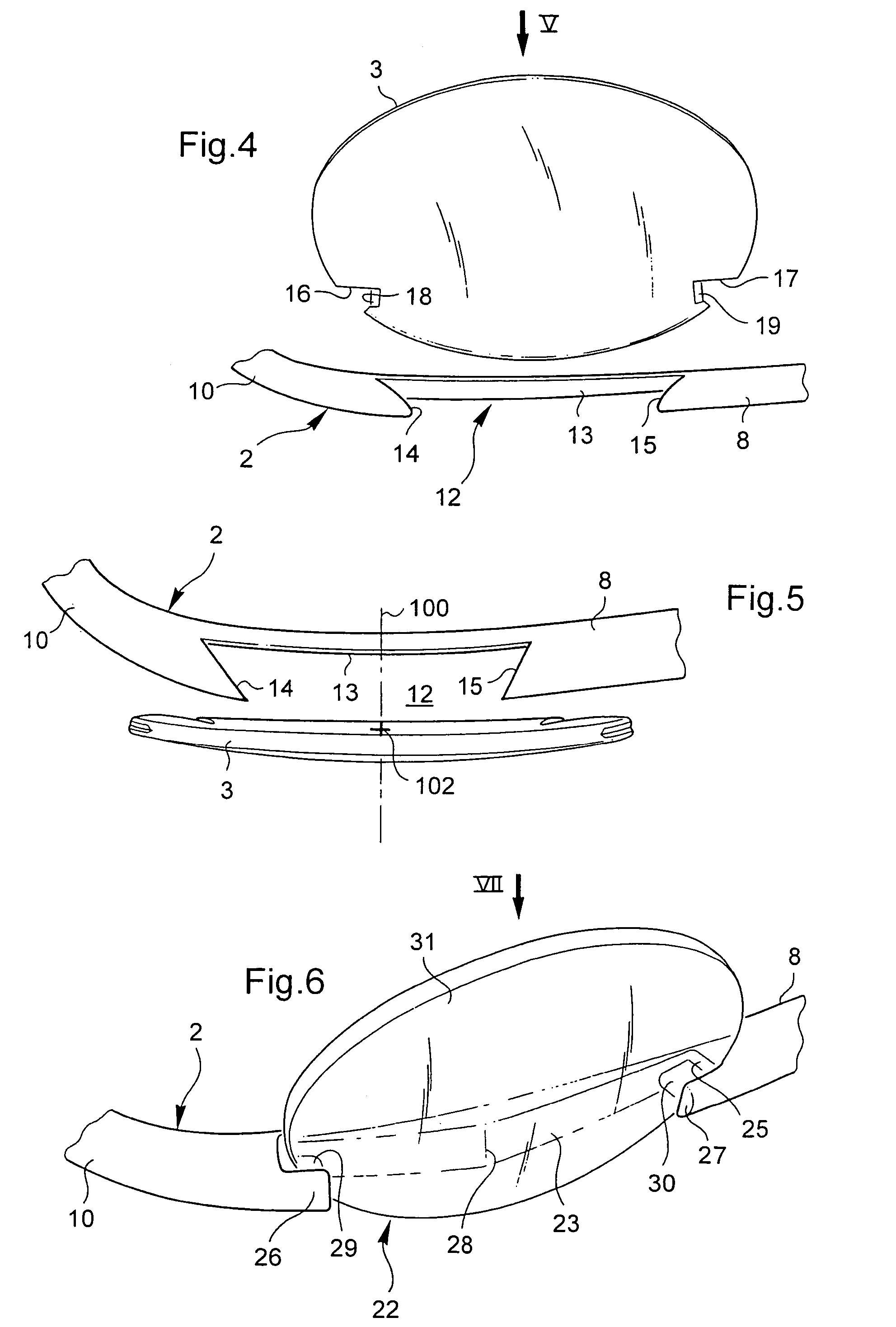Clipped lens eyeglasses
a lens and eyeglass technology, applied in the field of eyeglasses and/or sunglasses, can solve the problems of requiring a relatively difficult special operation to be performed by qualified operatives using relatively expensive special tools, affecting the appearance of the frame, and affecting so as to achieve the effect of improving the stability of the fram
- Summary
- Abstract
- Description
- Claims
- Application Information
AI Technical Summary
Benefits of technology
Problems solved by technology
Method used
Image
Examples
first embodiment
[0055]these means is shown in FIGS. 1 to 5. In order to receive the lens 3, 4 that is associated therewith, each of the two horizontal strips 8, 9 of the structure 2 presents a front lens-receiver notch 12. Along this receiver notch 12, each of the strips 8, 9 is curved longitudinally to match the curvature of the lens. The means for clipping the lens are arranged at the two side ends of the receiver notch.
[0056]The receiver notch 12 possesses two side ends 14, 15 arranged in undercut manner so that by virtue of their shape and their material, and in co-operation with the substantially rigid bottom 13 of the receiver notch 12, they constitute two resilient clamps that are V-shaped. Specifically, these two clamps constitute the means for clipping the corresponding lens 3, 4, and for this purpose they are arranged to apply axial resilient clamping thrust on the lens that is localized in two clamping zones situated in the vicinity of the edge of the corresponding lens 3, 4.
[0057]Becaus...
second embodiment
[0067]FIGS. 6 to 8 show eyeglasses in accordance with the invention.
[0068]The general architecture of the frame is similar to that of the frame 1 described above with reference to FIG. 1. As before, the two lenses are placed on either side of the bridge 7, and each of the two strips 8, 9 is provided with means for fastening the associated lens. In accordance with an essential characteristic of the invention, in order to ensure that the fastening of each lens is convenient and fast, the fastening is of the clipped type. In FIGS. 6 to 8 only the right strip 8 is shown together with an associated lens 31. The remainder of the general structure of the frame is analogous to that shown in FIG. 1, having two temples 5, 6 and a central bridge 7 for the nose interconnecting the two strips 8, 9. Only the means for clipping the lenses to the strips 8, 9 differ from those in the above-described first embodiment.
[0069]As before, these clipping means relate to the strips of the structure. Only th...
fourth embodiment
[0109]FIGS. 12 to 14 show the invention. A frame 81 comprises firstly a face structure 82 on which two lenses 83 are secured, and secondly two temples 85 for engaging the ears and hinged about vertical-axis hinges 86 to the side ends of the face structure 82. Only half of the frame is shown, with the other half being symmetrical thereto about a nasal midplane.
[0110]The face structure 82 has a central zone that possesses a bridge 87 for engaging the nose, the bridge presenting generally an upside-down V-shape, and the structure further possesses, symmetrically on either side of the bridge 87 and connected thereto, two horizontal strips 88 which are generally in alignment with each other.
[0111]In order to make it easier for the temples 85 to be hinged mechanically and in order to provide the frame with a certain amount of thickness for protecting the temples and the lenses, in particular when the temples 85 are folded against the frame 82, the strips 88 of the face structure 82 posses...
PUM
 Login to View More
Login to View More Abstract
Description
Claims
Application Information
 Login to View More
Login to View More - R&D
- Intellectual Property
- Life Sciences
- Materials
- Tech Scout
- Unparalleled Data Quality
- Higher Quality Content
- 60% Fewer Hallucinations
Browse by: Latest US Patents, China's latest patents, Technical Efficacy Thesaurus, Application Domain, Technology Topic, Popular Technical Reports.
© 2025 PatSnap. All rights reserved.Legal|Privacy policy|Modern Slavery Act Transparency Statement|Sitemap|About US| Contact US: help@patsnap.com



